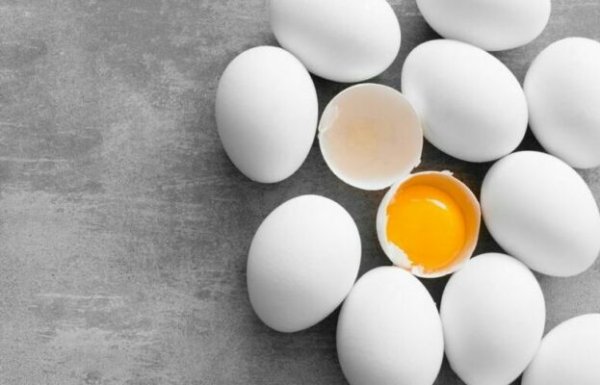
Eggs are considered to be one of the healthiest foods available. Eggs are packed with protein and contain all the essential (vital) amino acids the body needs, along with vitamins and minerals.
The egg white is the part of the egg that contains about 90% of the egg's protein and also provides all the amino acids required for your body to function optimally. This makes egg whites a complete source of protein. Essential amino acids cannot be produced by the human body, so they must be supplied through the diet.
With a few exceptions, plant-based foods lack one or more of these essential amino acids. Foods from meat, fish, chicken, eggs and dairy products, on the other hand, contain all the essential amino acids and are complete sources of protein.
The other amino acids that are included in the body's proteins can be formed by the body itself, either from other amino acids or from intermediates in the metabolism that are not amino acids. They are called non-essential amino acids. Only the amino acids that the body can form from non-amino acids are truly non-essential.
However, many of the so-called non-essential amino acids form the body with other amino acids as raw materials. A lack of an amino acid can thus lead to other, normally non-essential amino acids, becoming essential. In this way, e.g. the amino acid tyrosine is normally non-essential, as the body can make it from phenylanine. With a phenylalanine deficiency, however, the body can no longer produce tyrosine, which thus becomes essential. Amino acids that are non-essential only provided that another amino acid is available are called conditionally non-essential amino acids or semi-essential amino acids. A total of 6 of the non-essential amino acids are conditionally non-essential.
Eggs contain abundant amounts of the amino acids glycine and proline, which are the main components of collagen. By eating eggs, you give your body the amino acids needed to build your collagen.
The amino acids glycine, proline and hydroxyproline make up about 50% of the amino acids that make up your collagen! In fact, every third to fourth amino acid in collagen is glycine, which makes glycine the most abundant amino acid in the body's collagen!
To understand why glycine, proline and hydroxyproline are so important for your skin, here is a simple explanation. The extracellular protein collagen (which is abundant in the skin, but also in bones, tendons, cartilage and teeth, and also in many other organs/tissues) consists of three helical polypeptide chains that are rich in glycine, proline and hydroxyproline (hydroxyproline is a derivative of the amino acid proline). The collagen helix further lacks hydrogen bonds and is instead stabilized by a specific bond consisting of proline and hydroxyproline. Hydrogen bonds occur between the helices, on the other hand. Glycine then fills the inside of the coil.
If you do not eat animals or eggs, but fish, you can make sure to boost your collagen levels with a dietary supplement from fish instead!
Author: Natalie Rovaniemi CEO & founder of Celloptimum, with a Master´s degree in nutrition
The product has been added to your cart